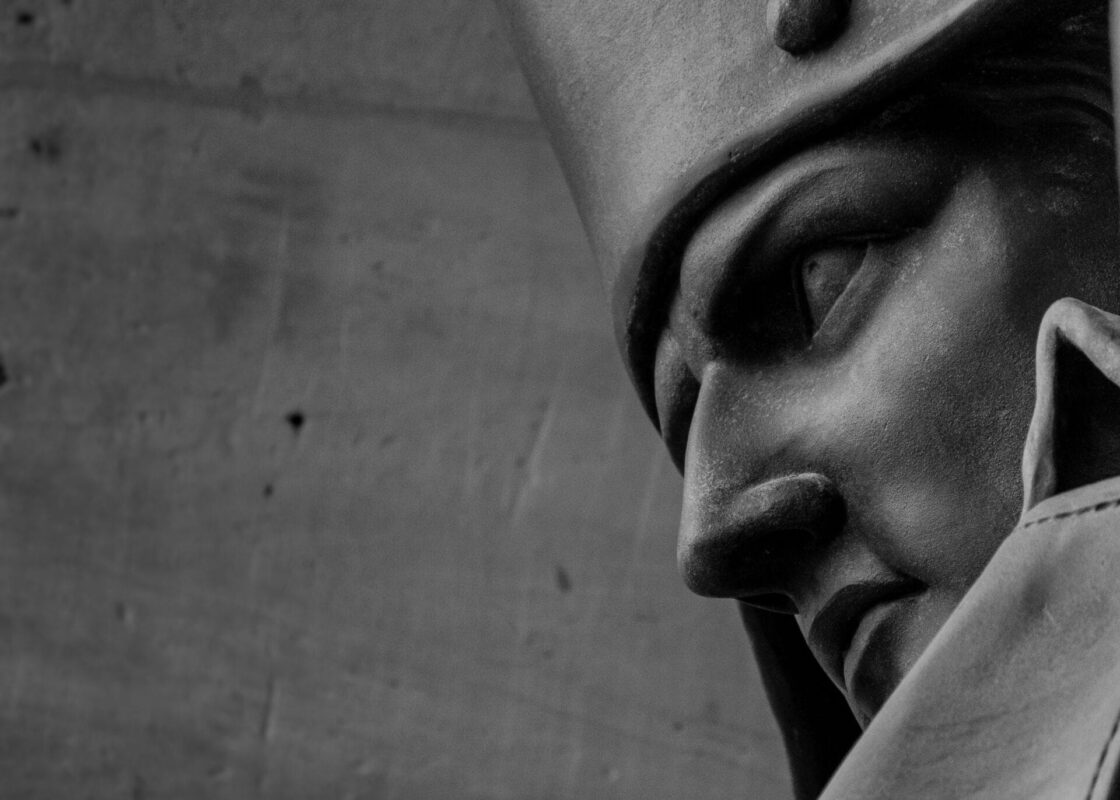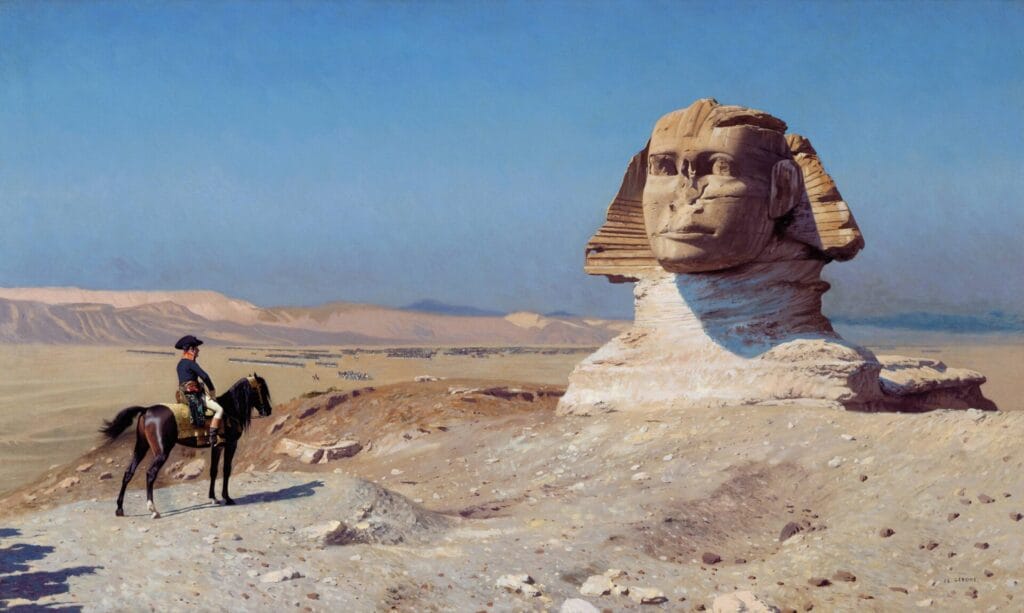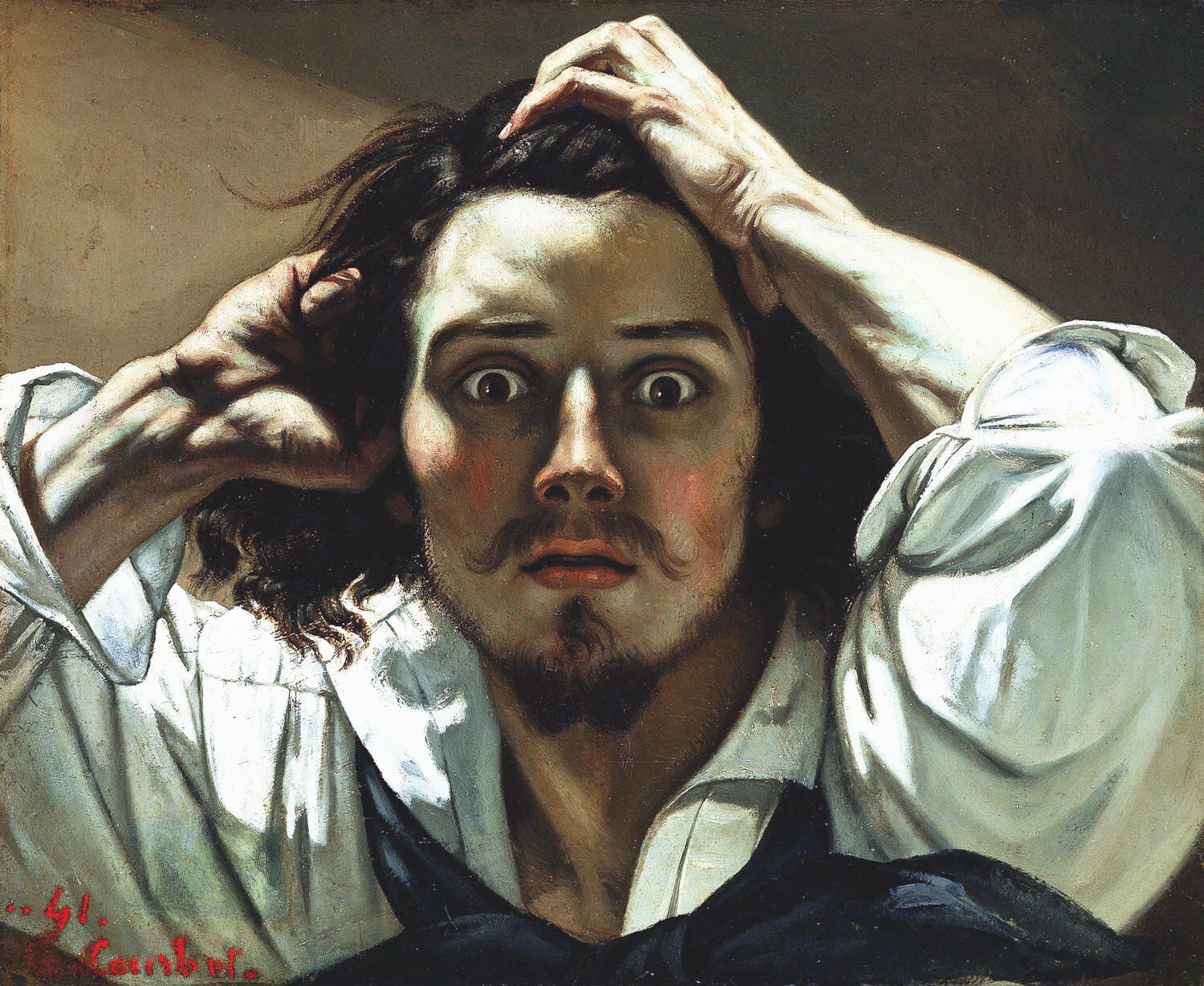
The Red and The Black | The Quest to be Napoleon
Author
Year
Format
Original language
Genre
In a recent New York Times article, historian Mark Mazower claims that Napoleon Bonaparte, “once larger than life, now feels so small”. Commenting on Napoleon, Ridley Scott’s new biopic about the Emperor, he observes that the ideal this political genius once represented is no longer attainable, not even in dreams. And although acclaimed actor Joaquin Phoenix is playing the role of the Emperor, the biopic just won’t resonate with spectators.
For centuries, Bonaparte has been regarded as the romantic hero par excellence. Possibly, the only real incarnation of Friedrich Nietzsche’s Übermensch. According to historian Eric Hobsbawm, he “gave ambition a personal name at the moment when the double revolution [of industrial capital and political republicanism] had opened the world to men of ambition.”
Unfortunately for the modern human, Mazower explains, seeing oneself as a potential agent of historical change sounds now as realistic as traveling in time. This feeling, however, may not be that new. Only a few years after the Emperor’s death, in the 1830s, the average French man was likely to be feeling just the same. And any reader of Stendhal’s most famous work, The Red and the Black, knows it all too well. ‘Stendhal’ was the nom-de-plume of the 19th century French writer Marie-Henri Beyle, born in 1783.

The Red and The Black: A Political Story
Set in the latter years of the Bourbon Restoration, The Red and the Black recounts the adventures of Julien Sorel, an uncommonly ambitious preceptor, or teacher and priest-to-be. Born into a modest family in rural France, Julien developed the most sincere admiration for Emperor Napoleon Bonaparte. He is determined to break class barriers by accumulating power within the Catholic Church hierarchy. His ardent character and the evil plots of his noble employers, however, continuously hinder his quest, eventually causing his death.
It doesn’t take a historian to deduce the political implications of Julien’s parable. As a relentless critic of its time and an early precursor of literary realism, Stendhal draws an unapologetic portrait of the French aristocracy in the novel. The fact that he was inspired by a true story only adds fuel to the fire of his writing.
Just like Stendhal’s main character, Antoine Berthet was a young seminarian from a modest family. Humbled by the anguish he endured as a preceptor, he shot his employer’s wife to death. Then, in December 1827, he was brutally executed, an event that would profoundly unsettle Stendhal.
Daydreams of a young revolutionary
Both Berthet and Sorel feel humiliated by their subordinate condition and find themselves ultimately unable to overcome it. Similarly to Fabrizio Del Dongo, the protagonist of Stendhal’s The Charterhouse of Parma, they have to deal with their human weakness. But unlike Del Dongo, they lack the endless resources noblemen take for granted, and they never had the option to rise.
Early in the novel, Julien Sorel observes that his admiration for the great commander Napoleon is little more than daydreaming. Under the Restoration, a man of his class will never be allowed to distinguish himself in the army. Only as a man of the church, can he hope to achieve social advancement and glory. The contraposition between these institutions is regarded by some critics as the key to understanding Stendhal’s cryptic choice of title. The red is an allusion to the garments of the army and the black to those of clergymen. But even by wearing a black habit, Sorel is bound to annihilative failure.
In the name of Julien Sorel
It is hard to disagree with Mazower: in these times of disenchantment, hardly anyone would ever be able to identify with the Emperor. Increasingly unmotivated to even express their vote in national elections, modern humans struggle to see their reflection in the almighty Napoleon. But if the distance of modern individuals from General Bonaparte is clear, the same is not true of Julien Sorel. And Stendhal’s ability to create such dramatic yet relatable characters is what made his work age so well.
Centuries later, desperate, uncompromising Sorel can still inspire all. He never stopped fighting to shape his own destiny, even if he saw the defeat ahead. He knew he could never be Napoleon, but he still tried until his last breath. According to British novelist Doris Lessing, a fervent admirer of Stendhal’s work:
The idea of Napoleon stood for nobility of soul, courage to defy belittling circumstances (like Julien Sorel’s misfortune of being born a peasant).
It was not about how high one could climb a certain ladder. It was about not fearing the fall. To all those still looking for a good reason to read The Red and the Black, consider this one: you may find a hero you can still look up to.
Tag
Buy a ☕ for Hypercritic










